
Politics
10:50, 15-Feb-2018
Ramaphosa elected after Zuma quits as South African president
By John Goodrich
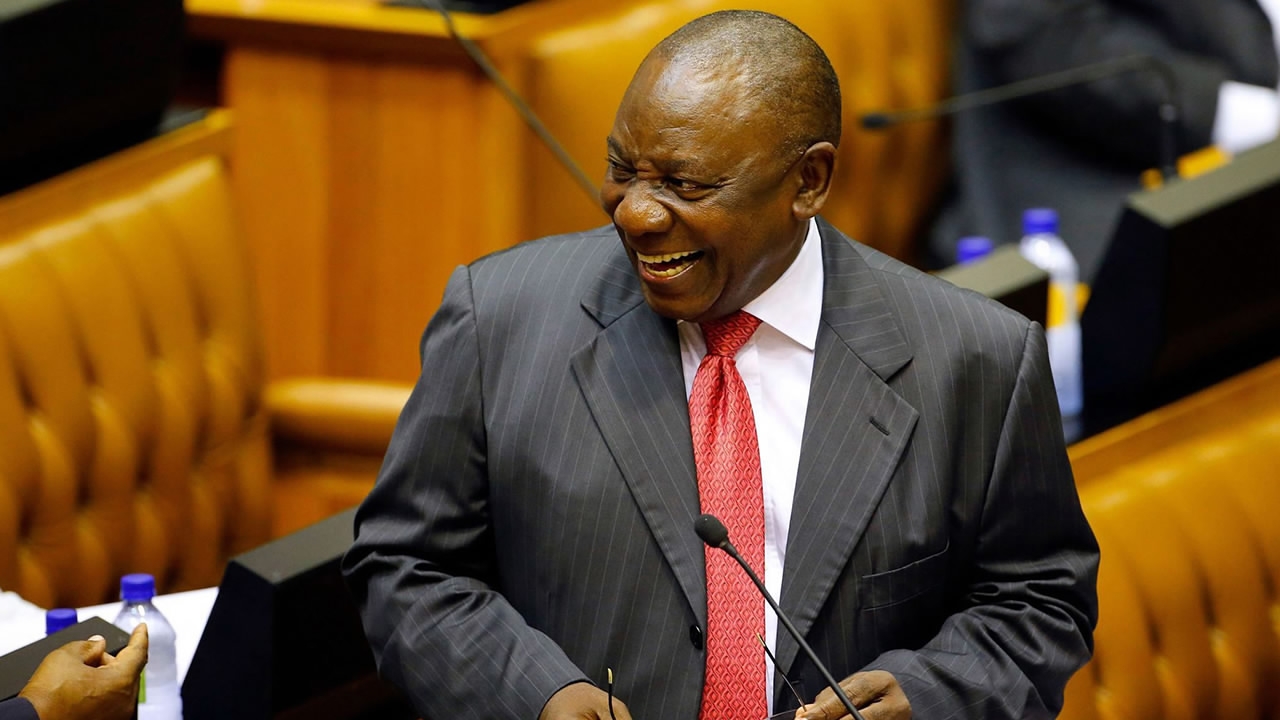
Cyril Ramaphosa was elected on Thursday as South Africa's new president after scandal-tainted Jacob Zuma resigned under pressure from his own ANC ruling party.
Ramaphosa was elected without a vote after being the only candidate nominated in the parliament in Cape Town, Chief Justice Mogoeng Mogoeng told assembled lawmakers.
Earlier in the day, the Parliament said it had received the resignation letter of Zuma, and noted it is effective immediately.
In a 30-minute farewell address to the nation late on Wednesday, 75-year-old Zuma said he disagreed with the way the ANC had pushed him out after nine years in office but would comply with its instruction.
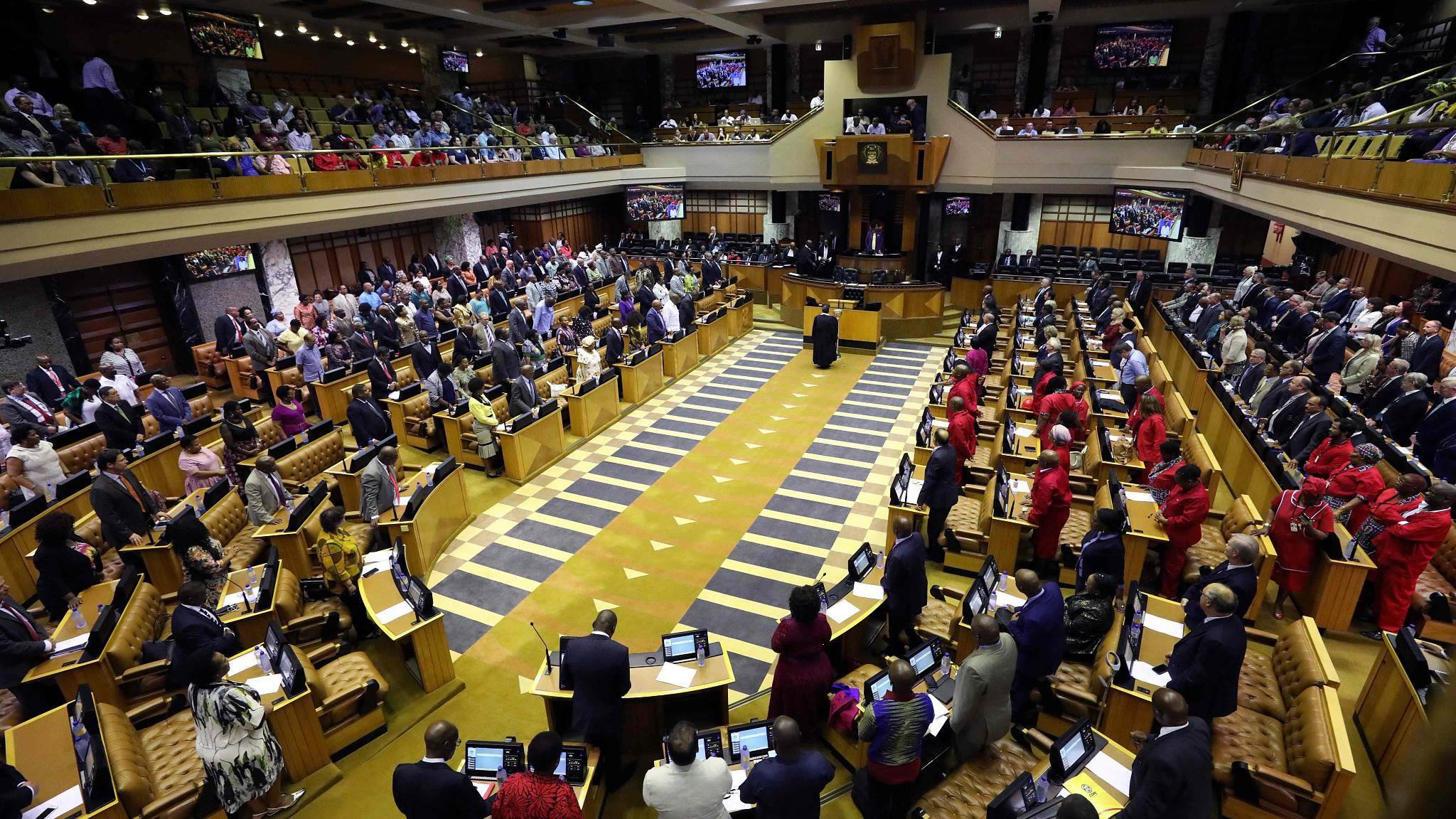
Lawmakers gather at Parliament in Cape Town for a session to officially deal with former President Zuma's resignation and the election and swearing of Cyril Ramaphosa, February 15, 2018 . /VCG Photo
Lawmakers gather at Parliament in Cape Town for a session to officially deal with former President Zuma's resignation and the election and swearing of Cyril Ramaphosa, February 15, 2018 . /VCG Photo
"I have therefore come to the decision to resign as president of the republic with immediate effect," Zuma said. "Even though I disagree with the decision of the leadership of my organization, I have always been a disciplined member of the ANC.”
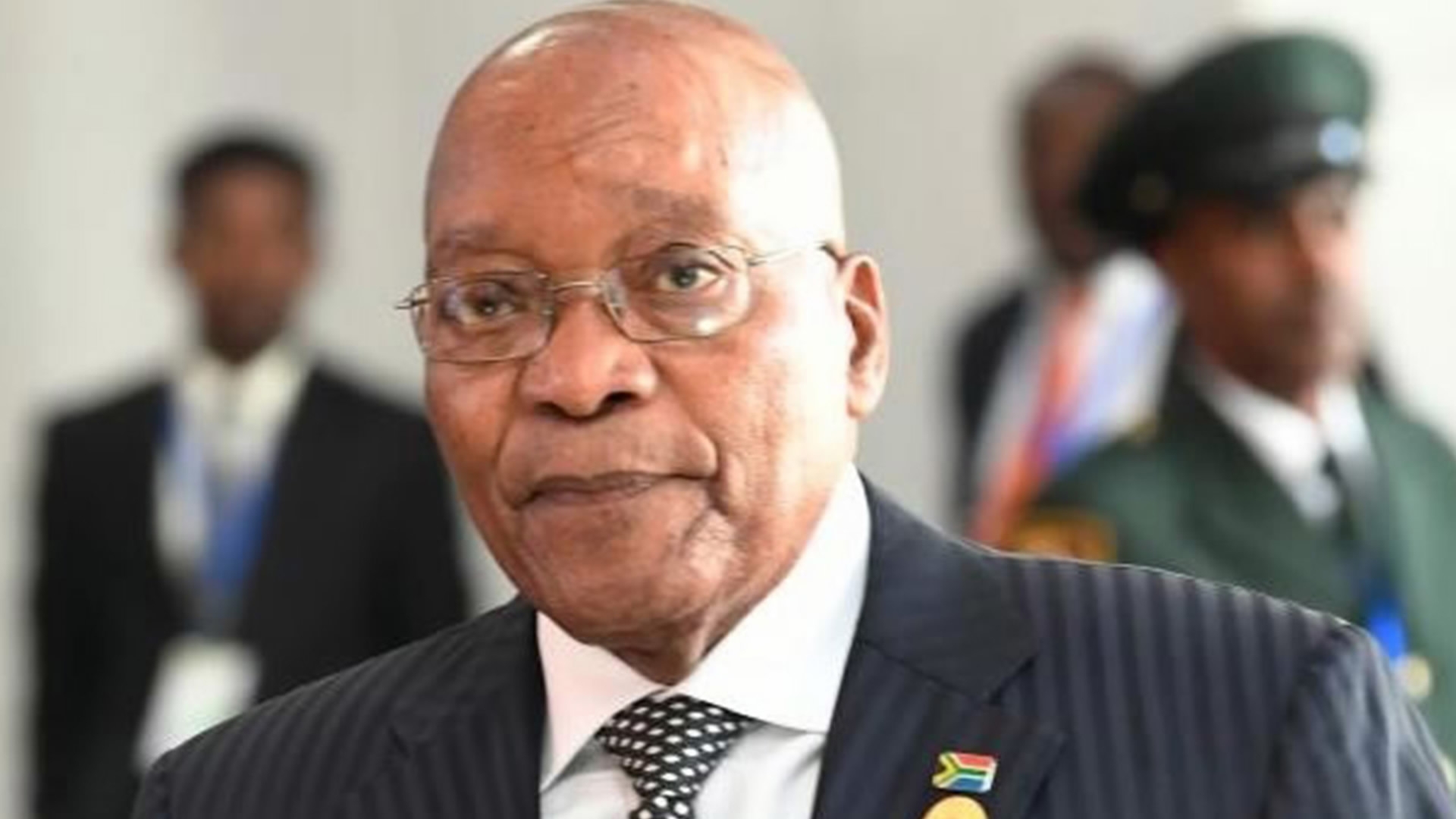
The ANC “recalled” Zuma, who faced an array of corruption allegations, on Tuesday and ordered him to resign. When he refused, the party threatened a vote of no-confidence against him in parliament on Thursday which he seemed certain to lose.
Read more: President Jacob Zuma resigns
Zuma has been in a lengthy power struggle with Ramaphosa, who narrowly defeated Zuma’s former wife Nkosazana Dlamini-Zuma in an ANC leadership election in December.
Ramaphosa now or later?
The South African Broadcasting Corporation reported on Wednesday that the new president was likely to be announced by Friday with the State of the Nation address scheduled for the same day.
ANC chief whip Jackson Mthembu said before Zuma announced his resignation that Ramaphosa could be sworn in as new head of state on Friday.
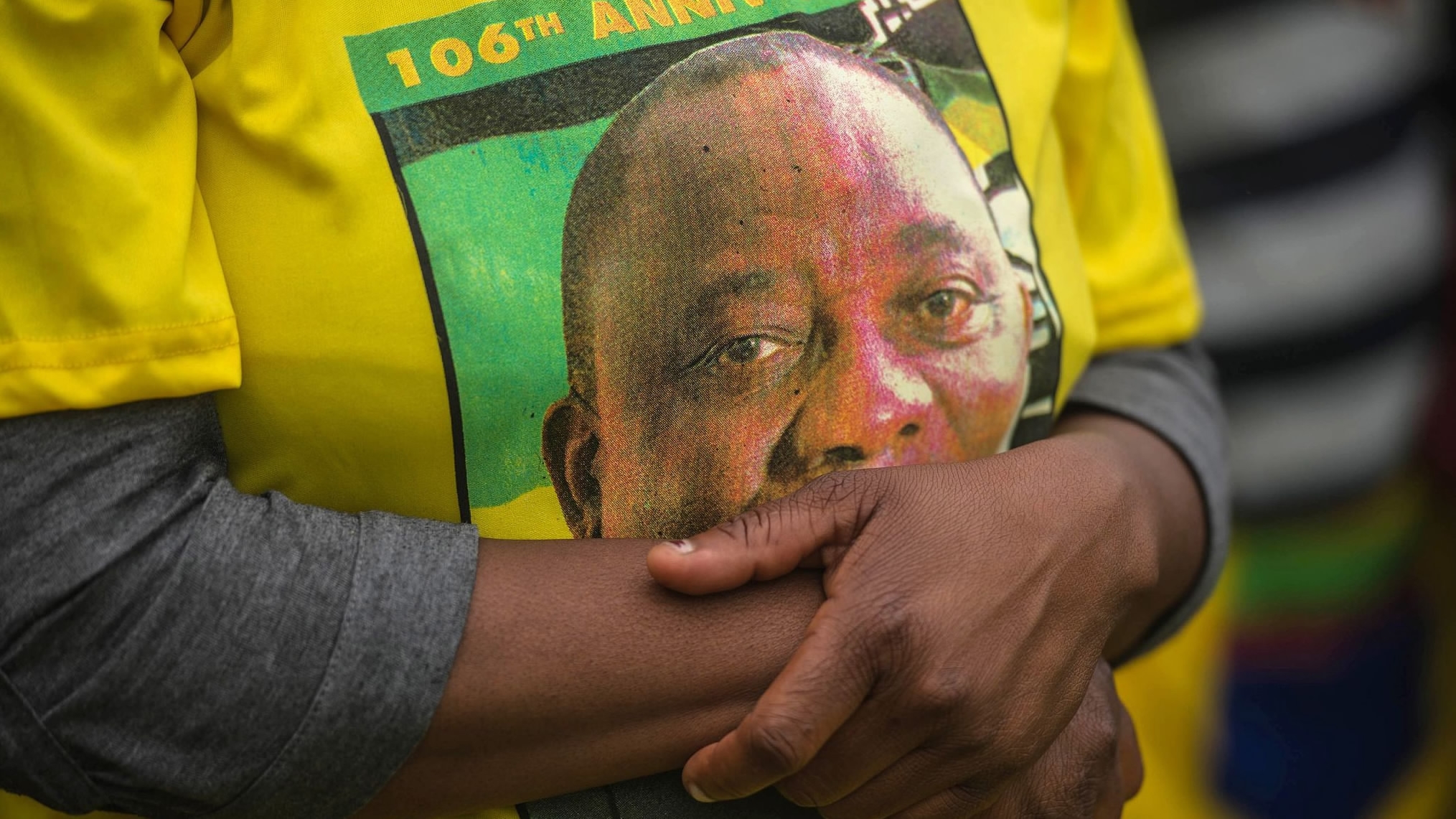
A person wears a T-shirt bearing a portrait of ANC President Cyril Ramaphosa during the party's 106th anniversary celebration at Absa Stadium in East London, South Africa on January 13, 2018. /VCG Photo
A person wears a T-shirt bearing a portrait of ANC President Cyril Ramaphosa during the party's 106th anniversary celebration at Absa Stadium in East London, South Africa on January 13, 2018. /VCG Photo
However, reports on Thursday morning suggested Ramaphosa may make way quickly for another ANC candidate before seeking his own mandate in the presidential election scheduled for 2019.
Ramaphosa, 65, was the ANC's chief negotiator with South Africa's apartheid rulers during the talks that led to the end of white rule, and is seen as a conciliatory figure who could help heal divisions that widened under Zuma.
Read more: Ramaphosa waits in the wings
Zuma was scheduled to stand down next year after serving the maximum two terms since coming to power in 2009. In local polls in 2016, the ANC recorded its worst electoral result since coming to power in 1994 with Mandela at the helm as white-minority rule fell.
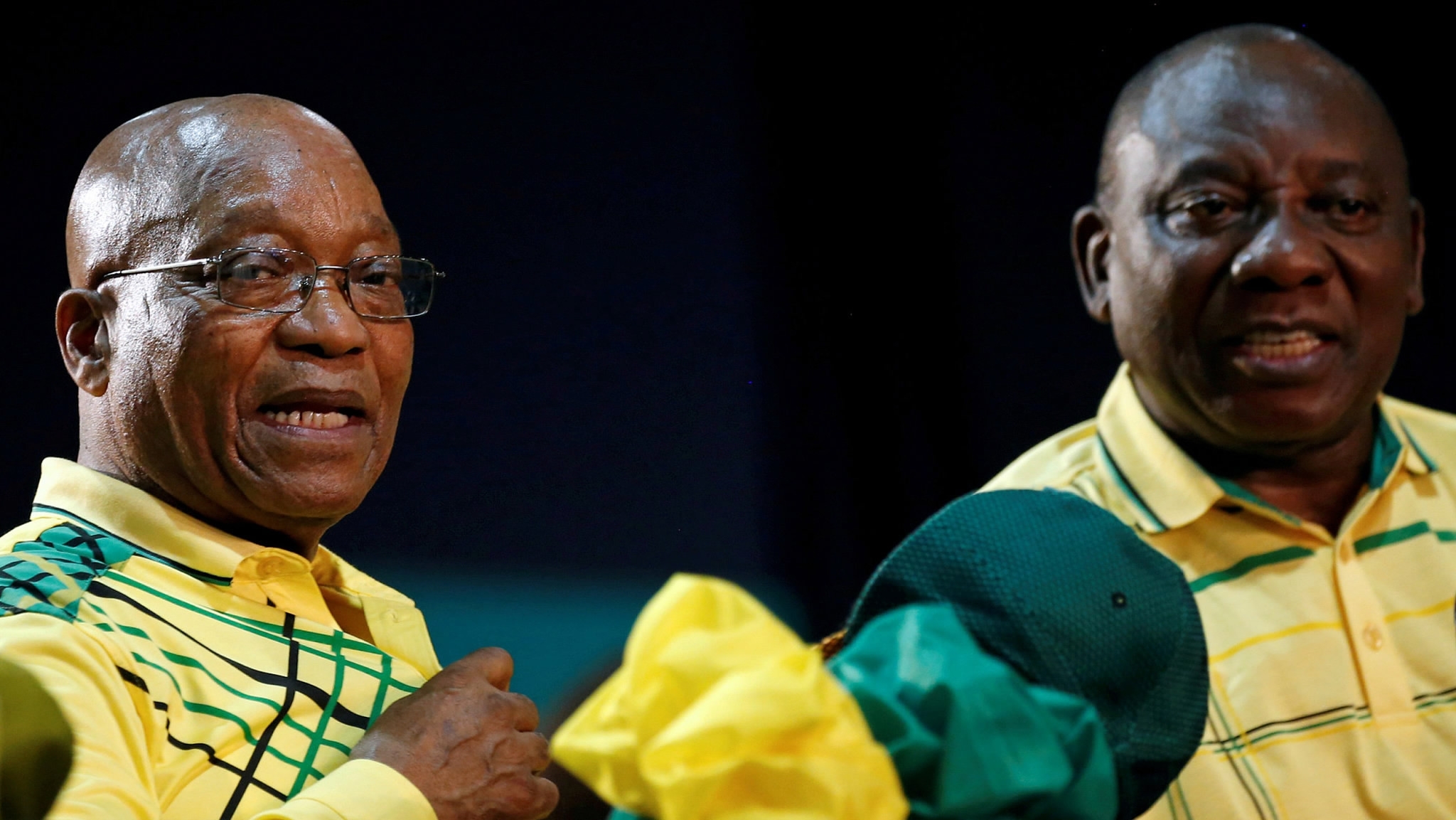
Jacob Zuma and Cyril Ramaphosa /VCG Photo
Jacob Zuma and Cyril Ramaphosa /VCG Photo
Ramaphosa must revive the economy and crack down on what he has admitted is rampant government corruption if he is to boost the party's tarnished reputation before a tricky election next year.
The Gupta connection
Local media reported that Zuma had been pushing for a resignation deal that included his legal fees to fight multiple criminal charges. He denied the allegations in his resignation speech.
Hours before Zuma's resignation, South Africa was captivated by news of an early morning raid on the Gupta brothers, who were accused two years ago by a corruption watchdog of using a relationship with Zuma to gain control of state companies and contracts.
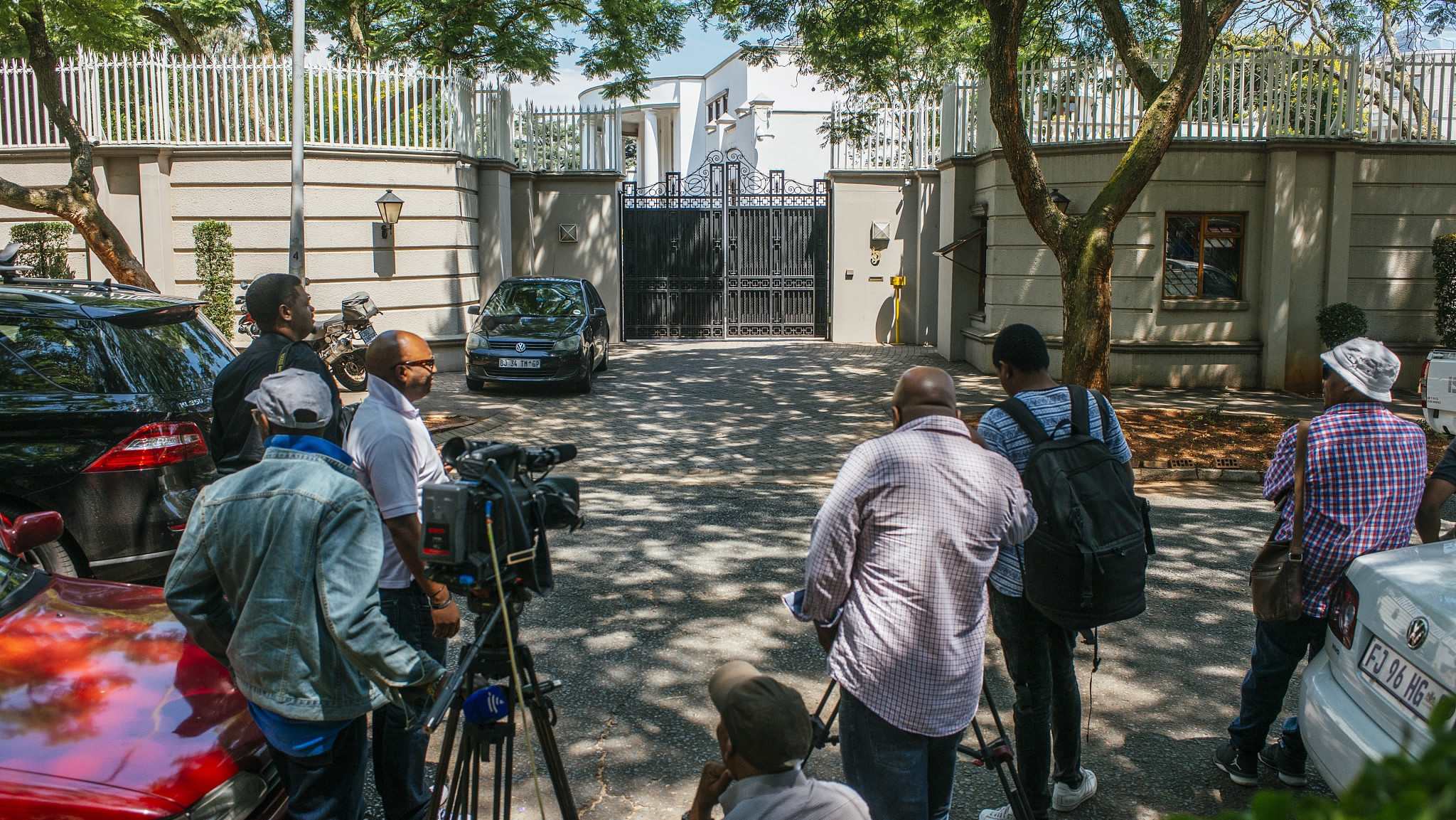
Members of the media stand outside the residence of the Gupta family in Johannesburg, South Africa, on Wednesday, February 14, 2018. /VCG Photo
Members of the media stand outside the residence of the Gupta family in Johannesburg, South Africa, on Wednesday, February 14, 2018. /VCG Photo
The police said the raid was in connection with a state-funded dairy farm, which prosecutors last month called a "scheme designed to defraud and steal."
Prosecutors have seized 220 million rand (19 million US dollars) in state funds allocated to the project and frozen bank accounts of one of the Gupta brothers. The Guptas' lawyer declined to comment on the case.
Another case against Zuma relates to 783 payments he allegedly received linked to an arms deal before he came to power.
(With inputs from agencies)

SITEMAP
Copyright © 2018 CGTN. Beijing ICP prepared NO.16065310-3
Copyright © 2018 CGTN. Beijing ICP prepared NO.16065310-3